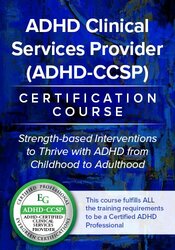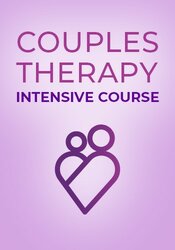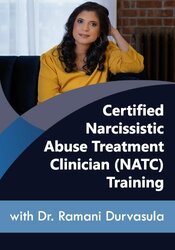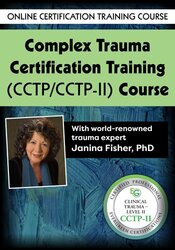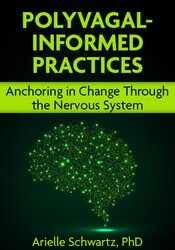Description
Traditional psychotherapy can often leave clients knowing about their problems but unable to change them. Polyvagal Theory bridges that gap between knowing and changing. Whatever approaches you use, polyvagal-informed interventions can be woven into them. In this workshop, you'll learn how to help clients recognize their own dysregulation, take steps to cultivate a regulated ventral vagal state, and begin moving toward greater physiological balance and psychological wellness. You’ll discover how to:
- Quickly reduce anxiety, obsessive thinking, and feelings of hopelessness with somatic tools like yoga-based breath, movement, and awareness practices
- Recognize and track autonomic cues of stress and signs of safety and intervene appropriately
- Increase clients’ emotional and physiological resources through grounding and orientating techniques
- Teach clients vagus nerve stimulation techniques for enhancing nervous system health
CPD
Planning Committee Disclosure - No relevant relationships
All members of the PESI, Inc. planning committee have provided disclosures of financial relationships with ineligible organizations and any relevant non-financial relationships prior to planning content for this activity. None of the committee members had relevant financial relationships with ineligible companies or other potentially biasing relationships to disclose to learners. For speaker disclosures, please see the faculty biography.
CPD
This online program is worth 2.25 hours CPD.
Speaker
Arielle Schwartz, PhD, CCTP-II, E-RYT, is a clinical psychologist, internationally sought-out teacher, therapeutic yoga instructor, and leading voice in the healing of PTSD and complex trauma. She is the author of six books based upon her integrative, mind-body approach to trauma recovery: The Complex PTSD Workbook; The Post Traumatic Growth Guidebook; A Practical Guide to Complex PTSD; EMDR Therapy and Somatic Psychology; The Complex PTSD Treatment Manual, and Therapeutic Yoga for Trauma Recovery. Her unique blend of spirituality and science can be found in her writings, guided trauma recovery programs, and applied Polyvagal Theory in yoga for trauma recovery.
Dr. Schwartz is an accomplished teacher who guides therapists in the application of EMDR, somatic psychology, parts work therapy, and mindfulness-based interventions for the treatment of trauma and complex trauma. She has a succinct way of speaking about very complex topics. She is a longtime meditation and yoga practitioner with a passion for the outdoors; all of which she incorporates into her work as founder of the Center for Resilience Informed Therapy in Boulder, Colorado where she maintains a private practice providing psychotherapy, supervision, and consultation. Dr. Schwartz believes that the journey of trauma recovery is an awakening of the spiritual heart. Discover more at drarielleschwartz.com.
Speaker Disclosures:
Financial: Dr. Arielle Schwartz maintains a private practice and is a trainer with Advanced EMDR Therapy Trainings. She receives royalties as a published author and receives compensation as an international presenter and a yoga instructor. Dr. Schwartz is a paid consultant for Evergreen Certifications. She receives speaking honorarium, recording, and book royalties from PESI, Inc. She has no relevant financial relationships with ineligible organizations.
Non-financial: Dr. Arielle Schwartz is a member of the American Psychological Association and the Yoga Alliance.
Additional Info
Access for Self-Study (Non-Interactive)
Access never expires for this product.
Questions?
Visit our FAQ page at www.pesi.com/faq or contact us at www.pesi.com/info
Objectives
- Discuss the Neuroscience of Trauma from a Polyvagal Perspective.
- Apply the Principles of Polyvagal Theory in Psychotherapy.
- Recognize the benefits of co-regulation and the social engagement system.
- Demonstrate how to enhance health through natural vagus nerve stimulation.
- Explore Therapeutic Yoga for Trauma Recovery.
Outline
Understanding the Neuroscience of Trauma from a Polyvagal Perspective
- Defining trauma & resilience
- The critical difference between a resolved vs. unresolved stress response
- What happens when our instincts are thwarted during a traumatic event
- The autonomic nervous system from a polyvagal perspective
The Principles of Polyvagal Theory in Psychotherapy
- Applied polyvagal theory as a transdiagnostic approach to care
- Research Limitations and Potential Risks
- The relationship between PTSD and sensory processing
- The role of neuroception in trauma recovery
- Empirically validated tools to assess physiological distress and psychological safety
- Reflect and Regulate: 5-point check in
The benefits of co-regulation and the social engagement system
- The different types of Co-Regulation
- Interventions for psychobiological regulation
- The benefits of proximity awareness in therapy
Enhancing health through natural vagus nerve stimulation
- Understanding and working with the vagal brake
- Defining heart rate variability
- Neuromodulation and natural vagus nerve stimulation
- Reflex Integration and Trauma Recovery
- Practice: Self-Havening Touch, Tragus stimulation, Humming, Rocking
Therapeutic Yoga for Trauma Recovery
- What does the research say about how mind-body therapies work
- Five types of interventions for therapeutic yoga for trauma
- Research efficacy of therapeutic yoga for trauma
- Trauma sensitive mindfulness and yoga
- Research Limitations and Potential Risks
- Practice: Conscious Breathing and Cross-Lateral Movement for Nervous System Regulation
Target Audience
- Psychologists
- Physicians
- Nurses
- Counsellors
- Marriage and Family Therapists
- Addiction Counsellors
- Social Workers
Reviews
Overall:
4.7
Total Reviews: 7


